That was what Mr. Nguyen Dinh Tung - General Director of Vina T&T - shared with VietNamNet on the morning of April 10 when he received the news that President Donald Trump suddenly announced a temporary suspension of high import tariffs for 90 days on 75 countries, including Vietnam.
Resuming export activities
“We were very happy and excited when we received the news,” said Mr. Tung. Vina T&T is a company specializing in the production and processing of fruits and vegetables. The US market is the mainstay, accounting for 58% of the company’s total export turnover. In 2024, fruit and vegetable exports to this market will reach 96 million USD.
Therefore, when the US wanted to impose a 46% tax on Vietnamese goods, he determined that businesses would be greatly affected because previously Vietnamese fruits and vegetables exported to this market were only subject to a tax rate of 0-5%.
In fact, in recent days, American partners have reduced orders by about 40% to hold off and test the market. They are afraid that high prices will not be accepted by consumers. Some shipments have been asked to speed up the process to be shipped to the US before April 5.
“Now not only us but also our American partners can breathe a sigh of relief. Export activities have resumed and are in accordance with previously signed contracts,” shared the General Director of Vina T&T.
According to Mr. Tung, the 90-day suspension of the US reciprocal tax is valuable time for exporting enterprises to have more time to negotiate with partners. In addition, enterprises are also looking to expand export markets, targeting the Chinese, Japanese, Korean, Canadian, and Halal markets...
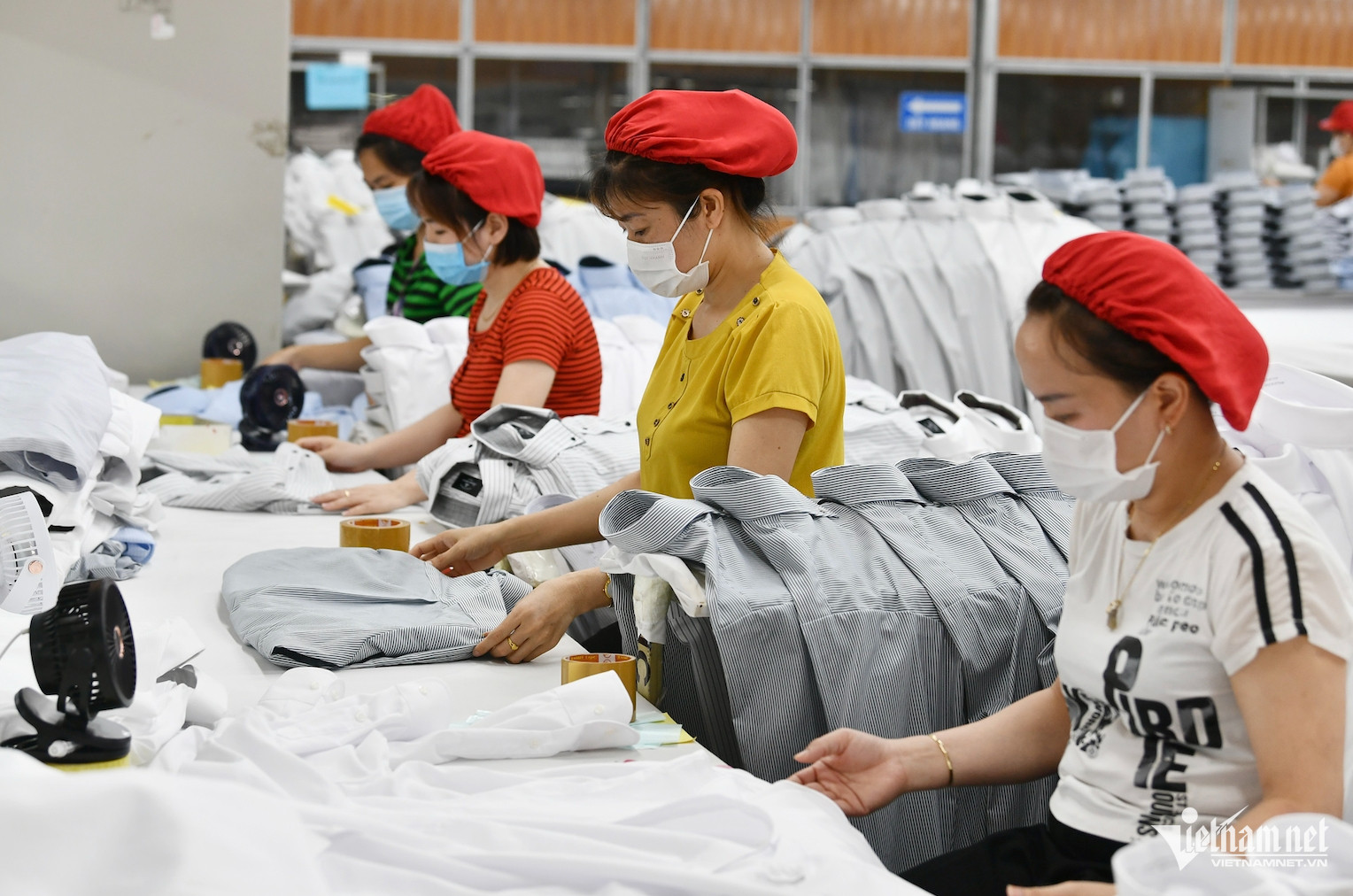
However, according to Mr. Hoang Manh Cam - Deputy Chief of Office of the Board of Directors of Vietnam Textile and Garment Group, the US postponed the 46% reciprocal tax but still applied a 10% increase on the current tax rates.
For example, the most favored nation (MFN) tax on Vietnamese garment exports to the US is currently around 18%, now plus 10% is 28%. Other countries are also subject to similar tariffs.
When the tax increases by 10%, the general trend of US partners is to find ways to negotiate and share part of the increased tax with manufacturers in Vietnam, India, Bangladesh... Manufacturers will have to reduce part of the selling price, affecting profit margins in the industry.
Although not as severe as the 46% tax rate, Mr. Cam said that the additional 10% tax rate will cause a decline in textile and garment exports to the US in general in the coming time.
Therefore, the 90-day suspension of the US reciprocal tax is an opportunity to extend the negotiation time as well as promote the rapid export of orders because the tax deadline of April 9 has caused partners to temporarily suspend imports, avoiding the case of leaving goods in stock for too long.
Furthermore, businesses need to negotiate closely with customers, calculate to share the risk of the current 10% tax rate and possible tax-related issues after the 90-day period. From there, calculate to regulate production costs in the most effective way.
Enterprises should also actively exploit and seek new markets to replace and compensate for the decline of the US market. According to observations from the group's research team, Canada, ASEAN... are very potential markets.
Golden time to negotiate and plan to prevent risks
Regarding the decision to postpone the imposition of reciprocal tariffs for a period of 90 days, Dr. Nguyen Thuong Lang - senior lecturer at the Institute of International Trade and Economics (National Economics University) - said that this is a very goodwill move by the US, opening up space for negotiations. This appropriate and timely decision is awaited by businesses like "rain after drought".
The postponement of the 46% tax also solves the problem of congestion and backlog of Vietnamese goods exported to the US.
“Moreover, we have a golden period of time to negotiate an extension, and at the same time, we can negotiate an end to US taxes on Vietnamese goods on the basis that Vietnam's reciprocal taxes are not applied to US goods, meaning they are reduced to zero,” he said.
Expert Nguyen Thuong Lang said that within 90 days, Vietnamese businesses must urgently produce and complete previously signed orders and then ship them to the US, possibly even making back-to-back orders.
At the same time, it is necessary to seek new markets and new partners. A large enough risk contingency strategy, capable of withstanding the long term, needs to be prepared urgently.
Mr. Lang also emphasized that the domestic market of 100 million people is very large. Vietnamese enterprises need to build a solid domestic supply chain, creating the highest resilience to unexpected "shocks".
“90 days is very precious, golden time, so businesses need to take advantage of it to take long, adaptive steps,” the expert noted.
According to Mr. Lang, in recent times, the Government and ministries have taken very proactive actions and acted very quickly. However, in the future, we need to have appropriate responses to the US. Continue to consider promoting the import of US goods, tax incentives and encourage US businesses to invest in Vietnam, especially in the field of high technology .
Along with reducing taxes and increasing imports of US goods, in the supply chain of goods, it is necessary to clarify the origin of goods, make raw materials transparent; and strengthen the fight against smuggling and trade fraud.
Source: https://vietnamnet.vn/ong-trump-hoan-ap-thue-3h-sang-khach-my-goi-gap-doanh-nghiep-viet-2389631.html













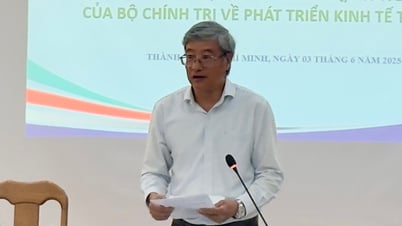



















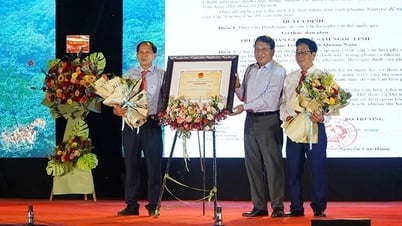

















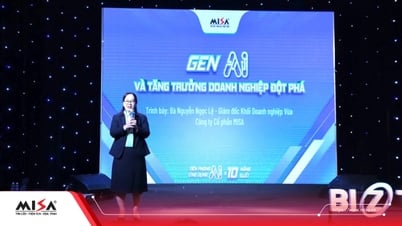





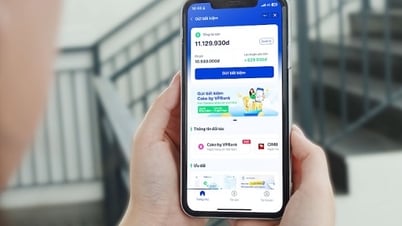

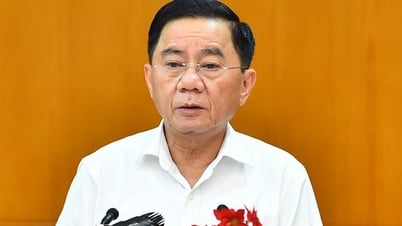
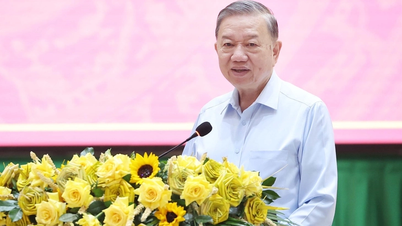




















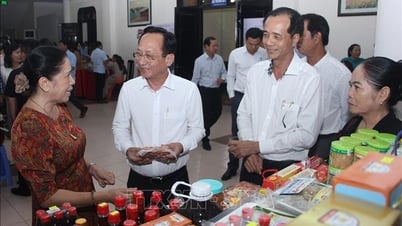












Comment (0)